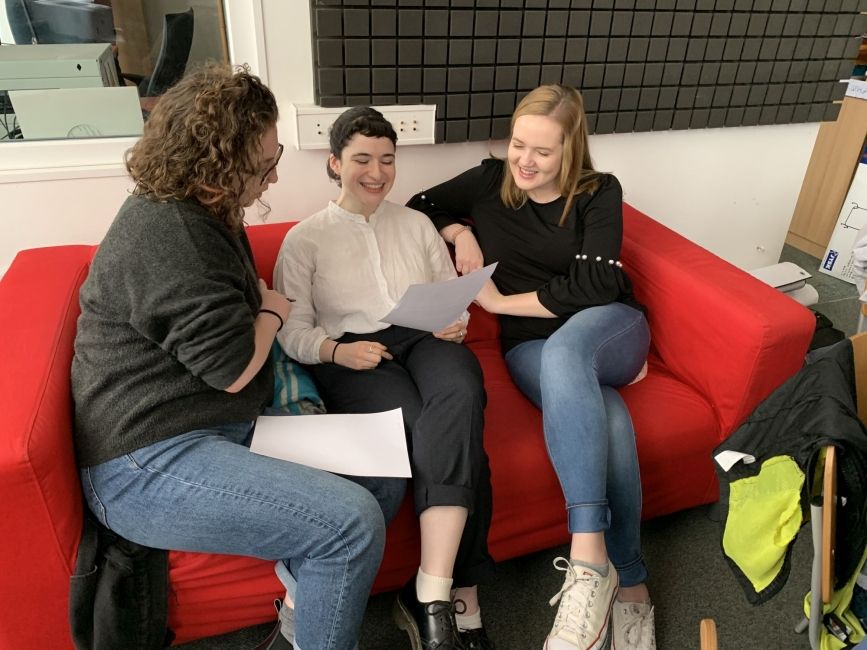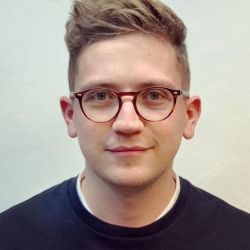After the Interview: A Reflection on Belief and Journalism
My name is Eliza Siegel and I'm a student on the Communications, New Media + Journalism program in Prague. I am also an editorial intern at Transitions Online, a news publication ...
I am an editorial intern at Transitions Online, a news publication that covers thirty post-Communist countries in the political transition. Some of my normal duties involve writing about this large and diverse coverage region. As a result of learning about the region, I have had my assumptions about politics and culture challenged in a variety of ways. I have also become much more aware of how my American-centric worldview has led me to take certain things for granted as “normal” or even unremarkable. Learning to write news stories about happenings in these countries has opened my eyes to the importance of cultural context, a lesson I am very grateful to have learned.
I am in the process of writing a long feature story about media literacy education in the Czech Republic. Several weeks ago, I traveled to Brno, the second largest city in the Czech Republic, on a CIEE excursion. I stayed on by myself for an extra night and day in order to interview some students from the local Masaryk University for my feature. A group of these students had started a group called Zvol si Info, or “Choose Your Info,” an initiative that tackles the regional and global issue of online disinformation head-on. I interviewed two members of the group, who described how they had created an informational guide to teach young people how to spot fake news and propaganda, to determine whether sources are credible, and to be smart online. They also talked about teaching media literacy to middle and high school students and teachers.
After one of the interviews, my interviewee and I got to talking about politics. He was interested in hearing my views about American politics, specifically about my views on the Trump presidency. As we spoke, and he began challenging many of my ideas and beliefs, I realized that our stances on the topic were quite different. While the conversation remained civil and friendly, I was caught off guard by the suddenness of this spontaneous political debate. After we parted ways, I reflected for some time on why exactly I had felt uncomfortable. I came to realize that, like many Americans who exist inside of insular communities, I had not had very many discussions with people whose political views differed drastically from mine. Both in my home town and at my home university, I am immersed in communities of people who think very similarly to me. Therefore, I was very taken aback by the need to defend my own beliefs and explain my reasons for having them.
While the experience itself was jarring, I ultimately think that it was helpful to me as an aspiring journalist. Journalism as a craft and a career is entirely centered on talking to people, learning from people, asking sometimes difficult questions, and learning to feel comfortable even though you may not agree with others’ beliefs. After the conversation with the student, I became more aware of my beliefs and why I think the way that I do, as well as my ability to remain professional and composed in unexpected situations, and to ask questions neutrally and without judgment. More than this self-awareness, I also came to recognize how much growing I still have to do personally and professionally. I realized that, in order to be a successful journalist, I must become more comfortable with the unexpected and unplanned. There will inevitably be conversations that do not go the way I thought they would, and people who think and feel differently than I do. Not only is this true of journalism—it is representative of the world itself. I am grateful that, through my internship at Transitions, I have the opportunity to interact meaningfully with a great many people, and to learn more about the world and myself.
Related Posts
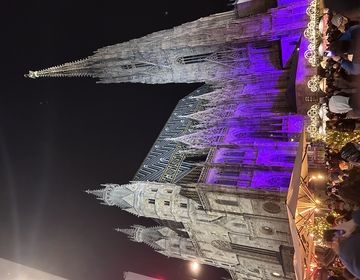
CIEE Vienna Trip Blog
By: Clyde Press I’ve been on so many incredible trips during my CIEE study abroad experience, but this weekend was something special. Unlike other trips I’ve planned and paid for... keep reading
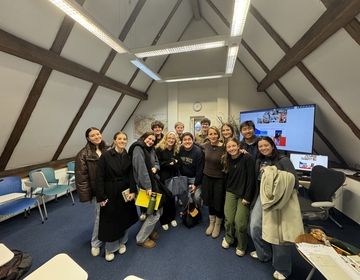
Finding a Sense of Home in Prague
By: Dylan Kircher Before arriving in Prague and beginning my CIEE program, I was nervous. I had never been away from home, my family, or my friends for this long... keep reading
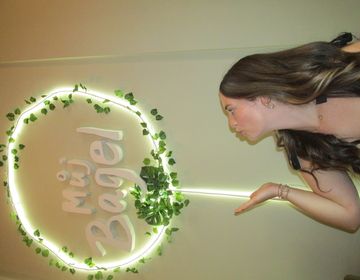
Find a place abroad that feels like home
By: Ava Scott When you are an eleven-hour plane ride away from home, you need to find a place abroad that feels like your home away from home. For me... keep reading
